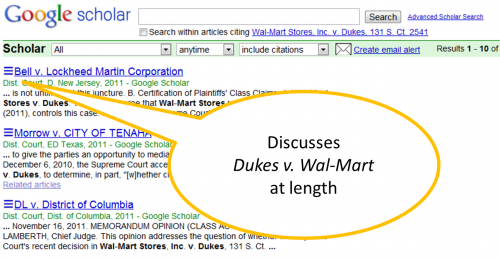Here’s a short summary of the program, with links to selected documentation.
- Approaching New Research Projects: Preliminary Analysis and Secondary Sources. [slides]
- Off-campus access to UCI Law databases using VPN. Related link: Law Library Password FAQ.
- Tips: Bloomberg Law, Lexis, and Westlaw.
- Request a Bloomberg Law password –
form. (Updated link 7/30/2012)
- Request a Bloomberg Law password –
- Hands-on research examples [ Note-taking template ]
- Lunch and panel. Panelists were: Sheila Neville, Senior Attorney at Legal Aid Foundation Los Angeles; Michael Torres, Acting Assistant City Attorney at City of Newport Beach; Nathan Scott, Senior Attorney at California Court of Appeal, 4th District.
- Primary Sources
- Common Summer Research Projects [slides] Check the slides for starting tips on:
- Dockets
- Multi-jurisdiction surveys
- Legislative History
- Updating – taking an earlier brief, memo, etc. and checking for developments
- Issue research
- Externship Program remarks from Laura Fry
 The Library maintains a small collection of select study aids, including several popular series. However, there are many other options available, and we encourage students to contact their professors for suggestions on supplementary reading.
The Library maintains a small collection of select study aids, including several popular series. However, there are many other options available, and we encourage students to contact their professors for suggestions on supplementary reading.
